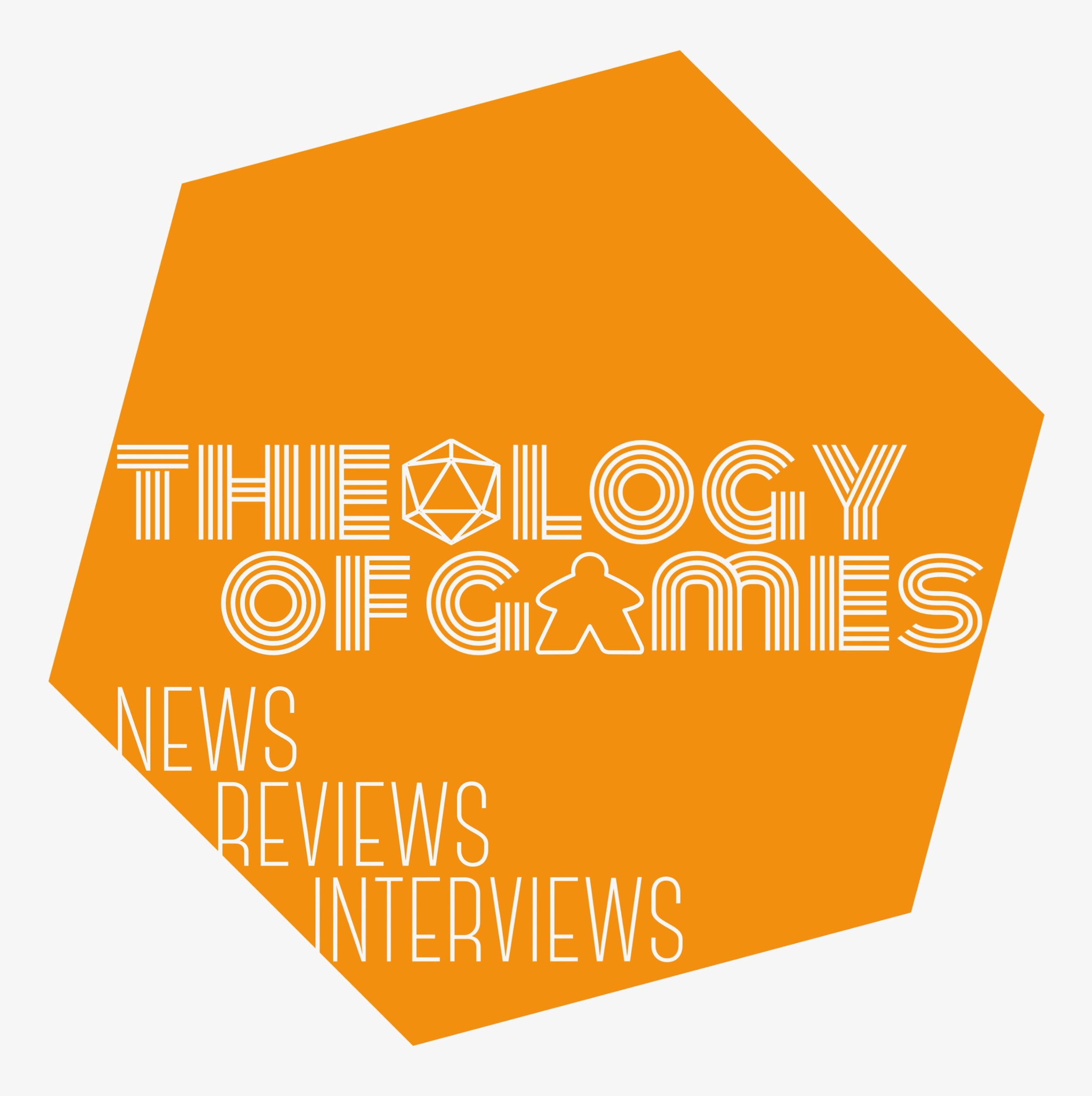Kerflip!—A Double-Take Review
/ One of our favorite things in the world happened a few weeks ago. We were sent two, count them TWO, copies of a game (one for each of us) to review. And better yet, it turns out it was a pretty fun one.
Kerflip! dares to walk into the realm of games dominated by the likes of Scrabble (the old cardboard-and-wood version of Words with Friends) and Boggle. That's like someone trying to make a trading and expansion game that's better than Settlers... Okay, maybe it's not that daring a course of action. Anyway, the rules and gameplay of Kerflip! are pretty simple, and as follows.
One of our favorite things in the world happened a few weeks ago. We were sent two, count them TWO, copies of a game (one for each of us) to review. And better yet, it turns out it was a pretty fun one.
Kerflip! dares to walk into the realm of games dominated by the likes of Scrabble (the old cardboard-and-wood version of Words with Friends) and Boggle. That's like someone trying to make a trading and expansion game that's better than Settlers... Okay, maybe it's not that daring a course of action. Anyway, the rules and gameplay of Kerflip! are pretty simple, and as follows.
The game comes with a bunch of letter tiles in a bag, a small deck of bonus cards, a nifty playing board, and one hourglass timer. The tiles have two sides, one that is orange, and another that is white.
There are no "player turns"; everyone plays a round at the same time. And a round looks like this.
Depending on how many players are in the game (2-4), players remove—without looking—a certain amount of letter tiles from the bag, and on the count of three drop them on the board. Once dropped, players quickly flip the orange tiles over to the white side and then shout out a word that the letters make. Being quick here is a big advantage, as you'll see in a minute. If someone is taking way too long to blurt out a word, any player can flip the timer over and put the pressure on them. If they don't say something, then they pay the ultimate penalty: not scoring anything that round.
Once players have all shouted, or at least spoken a word (shouting isn't always required) each player in shouting order arranges the tiles to spell their word, and then scores it. Once it has been used, it is flipped from white to orange. Then the next player spells their word, scores it, and flips any white tiles to orange. (Orange tiles don't get flipped again.) And so on.
 It's important to be so quick because when you score a word, you get 10 points for using tiles that are still white-side-up. Once they've been flipped to the orange side they are only worth 5 points. Also printed on the white side of specific tiles is a number. If you are the first to use that letter, you will be handed a number of bonus cards equal to the number on that tile—these cards range in value from 0 to 20 points. Once that tile is flipped the number goes away and subsequent users of that letter do not receive the bonus cards. These bonus cards, which aren't allowed to be seen (even by the recipient), give extra points for final scoring.
It's important to be so quick because when you score a word, you get 10 points for using tiles that are still white-side-up. Once they've been flipped to the orange side they are only worth 5 points. Also printed on the white side of specific tiles is a number. If you are the first to use that letter, you will be handed a number of bonus cards equal to the number on that tile—these cards range in value from 0 to 20 points. Once that tile is flipped the number goes away and subsequent users of that letter do not receive the bonus cards. These bonus cards, which aren't allowed to be seen (even by the recipient), give extra points for final scoring.
Once everyone has spelled, scored, and flipped their letters, the board is cleared by simply brushing used tiles to pits on either side of the board next to where the bonus cards are held, where they drop below the playing surface. Play continues in these rounds until any player can no longer pull their allotted amount of tiles to begin a round.
There is also one super awesome tile that gives your either 25 or 50 points for being the first person to shout a word on the round that it is thrown on the board. You get the amount of points that is shown when it drops. (One side is worth 25, the other 50; it's that simple.)
After the game ends, players add their points to the bonuses on the cards they gathered during the game and whomever has the most points wins. Once you're done, you lift the board (which stays inside the bottom half of the box) up and shake all the tiles into the unseen collection cup, which then pours them neatly back into the bag.
Jeremiah—Games like this SHOULD be fun, light-hearted, party game experiences. And for the most part they are—although I have some friends you just don't want to play word games with. You will be destroyed. But I will proceed as if I was not going to play with "those people."
Firestone—I stopped playing word games a long time ago—especially play-by-email ones like Words With Friends. "Hmmm...Steve can barely keep his shoes tied, but somehow he knows the word 'fuliginous.' I smell a cheater..." This is one I'll definitely play, though; the speed factor levels the playing field a bit.
Jeremiah—I thought the components were thought out, and well done. It's the small things, like the tiles actually flip without turning the letters upside down so you don't have to flip and spin to be able to read them. And let's be honest: The board/cleanup mechanism is pretty ingenious! The worst part about games that have tiles is cleaning up the tiles. Well done!
Firestone—Yeah, this gains a full point for thinking through the pain-in-the-butt aspect of tile games: cleaning up. They just said, "What if we made it not awful?" and then made it super easy.
Jeremiah—There's so much FLIPPING. The down side to this game is that I felt like we did more housekeeping than actual playing. Counting tiles without looking, dropping, flipping, shouting, spelling, flipping, flipping again, flipping some more, score keeping, handing out cards, sweeping away tiles. Thankfully, there's a fun game in the midst of all that busy work.
Firestone—To be fair, Jeremiah, the word flip is right there in the title... ;) I didn't mind the flipping so much. The "gamer" in me isn't too fond of the bonus cards, since they are of varying points, but I totally understand why they help in a casual game like this—especially if you're playing with people of varying abilities.
Jeremiah—Like I said earlier, I really thought the components were well done. I did however think the timer was a bit too much. We have much more effective means and steeper penalties to get someone's butt in gear (which may or may not include the threat of dismemberment—just sayin'...). On one occasion I didn't even remove the timer from the box.
Firestone—We haven't used the timer at all. I prefer tasers...
Jeremiah—It's an awesome casual family game. It literally will take about 5 minutes to learn and/or teach everyone, from the veteran gamer, to folks who are just realizing there's a game called "Risk."
Firestone—It's not the sort of game I'm going to play with my regular game group. But this is perfect for my wife and I to play with our oldest—who's 8. He's already a terrific reader, but this helps him work on speed and spelling and accuracy. He just wants to play round after round after round of it. And if that's not a great endorsement, I don't know what is.
Final Thoughts and Rating:
Jeremiah—Overall I've enjoyed the times I've played the game. It's a really quick filler and it can be fun to watch folks get flustered trying to make words with letters that haven't been used already. My overall rating is 7.5. My mad-scientist-like-components rating is a perfect 10!
Firestone—Anything that creatively challenges my kids gets a good score from me. And the fact that he asks to get creatively challenged in this way is even better. This is a solid 8 from me—with a Thanks-For-Thinking-Through-Common-Problems rating of 10.
We'd like to thank Creative Foundry Games for providing a review copy of Kerflip! and you for reading.














